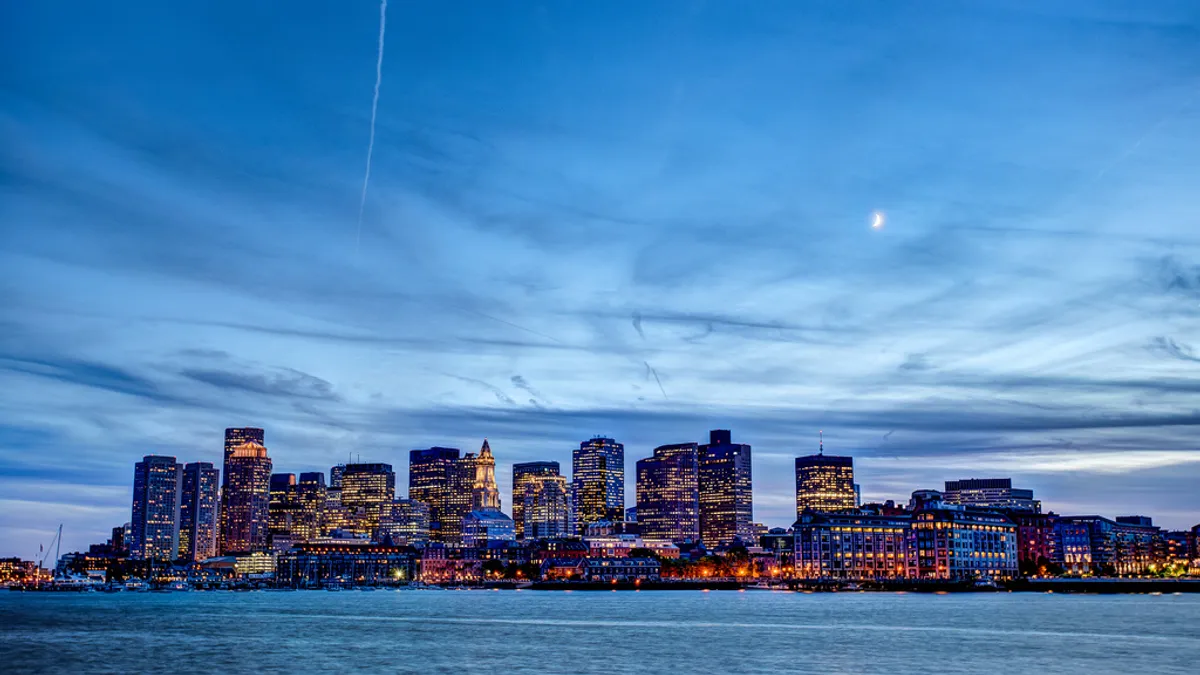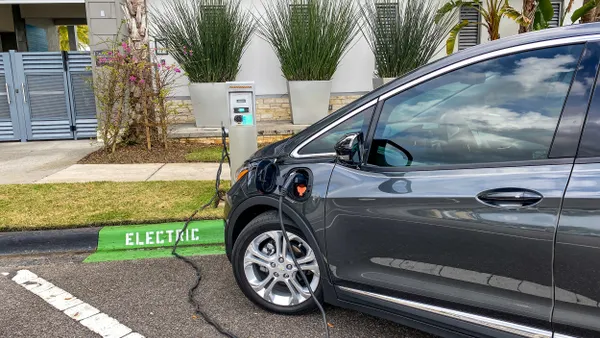Dive Brief:
- Boston will allow MIT-backed startup nuTonomy to conduct autonomous vehicle (AV) testing across the city, expanding a pilot program that had been restricted to the city's Seaport District.
- The citywide tests will have to comply with "all testing safety protocols," the city said, including that the cars drive within the legal speed limit and that a professionally trained safety driver be behind the wheel to take over driving. nuTonomy will also have a second passenger to monitor the car's systems.
- The nuTonomy tests began in the Raymond L. Flynn Marine Industrial Park before expanding to all of Seaport and eventually to Lyft cars carrying passengers. Boston briefly suspended the tests after a fatal crash by an Uber self-driving car in Arizona in March.
Dive Insight:
Caution is the name of the game when it comes to nuTonomy's tests. Boston Mayor Martin Walsh said in a statement the tests will be done in a “careful and methodical manner,” and said the benefits of shared autonomous fleets will only be felt “if deployed thoughtfully.”
Boston’s AV rollout has been deliberately slow, rather than allowing companies free rein on city streets. The initial tests in Seaport took advantage of the area’s predictable grid layout and had 18 months of trials to see how the technology worked in various weather conditions. The city had halted its trials after the Uber crash, although they resumed after just a week. The city’s Go Boston 2030 mobility goals rely on work with academic institutions and data collection, making the controlled tests a necessity.
Karl Iagnemma, president of nuTonomy parent company Aptiv, wrote in a blog post that new tests would expose AV technology to some of the most “challenging and complex” roads in the nation, including cobblestones, winding turns and difficult weather. Those conditions will no doubt give city officials and nuTonomy plenty of material on how the vehicles can function in a busy city, but also means there will be plenty of scrutiny on the tests. Public polling shows many people still have concerns about how safe AVs can be; a crash in the difficult conditions of Boston will attract more skepticism.
Also a factor, according to Iagnemma, are Boston drivers. “Between frequent double parking, spontaneous lane changes, and the famous ‘Boston left,’ they treat the rules of the road as mere suggestions,” he wrote.











